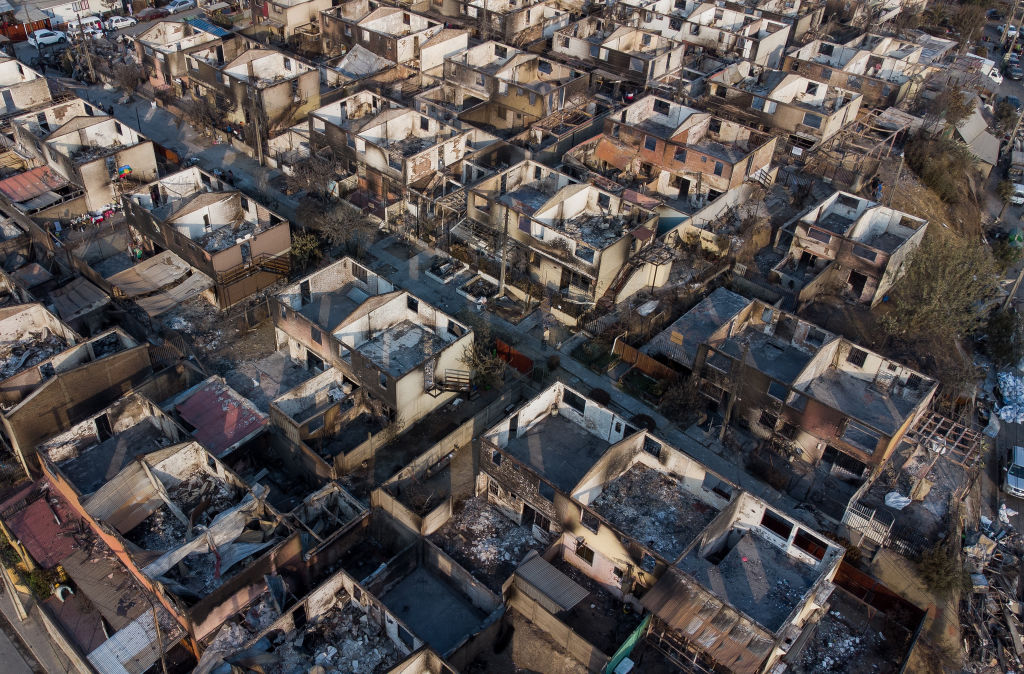From the coast to its central provinces, more than 120 people are dead and many others are missing due to a rash of wildfires raging throughout Chile. The beleaguered South American country appears to have suffered a death toll of at 122 at the time of this writing, with thousands more left homeless. The wildfires have been particularly brutal to the residents of Viña del Mar, where the flames are burning with the highest intensity. Viña del Mar was once home to a famous botanical garden since 1931— now it has been incinerated. Other nearby cities like Quilpué and Villa Alemana have reportedly been evacuated to prevent looting.
The wildfires occurred against a backdrop of unprecedented heat waves in Chile. These record high temperatures have combined with the effects of the El Niño weather pattern to cause severe droughts, which in turn make wildfires more likely.
The current unprecedented heat is driven by burning fossil fuels and climate change, but it's harder to directly attribute fires to climate change. As Salon previously reported, it is difficult to answer that question — but not impossible.
"Factors that affect the fire such as temperature, fuel aridity, relative humidity, and wind leading up to and during the fire can be compared to historical conditions," Crystal Raymond Ph.D., a climate adaptation specialist at the University of Washington's College of the Environment, wrote to Salon in August. "How frequent have these conditions been in the past? How rare are they? 99 percentile, 99.9 percentile, unprecedented in the historical record? That is relatively easy to calculate. Then climate modeling can show how much more likely those conditions are given the climate warming that has already occurred and will continue in the future."
"For fires though, it is less direct than heatwaves because other factors also matter, like the cause of the ignition and the efforts to stop the fire," Raymond added. "These factors aren't an issue when attributing heatwaves to human-caused climate change."


